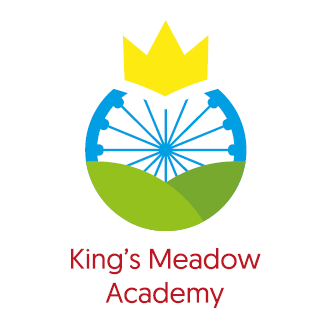Personal Development is at the heart of everything we are trying to do at King’s Meadow
There’s a lot more to success than fame and fortune – it’s about feeling good about yourself and learning to overcome setbacks.
The first step in helping children to be successful is to give them an understanding of what actually constitutes success. It is not just about money. It is about happiness, choices and feeling good. People who are successful feel good about their success: how hard they have tried; who they are; how they spend their time; and the choices they have in their lives.
Everyone can be successful by learning and acting on the following eight simple strategies:
1. Try new things
Success does not come knocking on the door. We all need to go out and find areas in which we can experience success. Finding something that children are good at builds confidence. Some children may not be good at the things they spend most of their time doing at school, which makes it even more important that schools have a broad curriculum offering something for everyone.
2. Concentrate
Children are living in an intensely stimulating time. They are bombarded with images from television, websites, games consoles and mobile phones. It has never been so important to teach children how to concentrate.
Children need to learn how to “tune out” things that are distracting them. This is much easier to achieve, of course, if children know what it is they are supposed to be doing. By teaching children techniques, such as drawing pictures to understand what they are doing, talking things through with others or breaking things down into small, manageable steps, you can help to boost concentration skills.
3. Work hard
Accomplishment is all about practice and children need to understand and value the benefits of working hard. They need to know that work is good and not something to be avoided. Many children become very frustrated if they don’t accomplish something straight away. With a television culture of X-factor-style “overnight” success, it is very important to teach children that it may actually take hours and hours of hard work to become really proficient at something and that, in real life, achieving success is not easy for anyone.
4. Push yourself
To be really successful, children need to learn to push themselves. We assist children by helping them to set goals, decide on deadlines and to be less fearful. Sometimes children won’t know that they are scared of something, just that they don’t feel right. Parents and teachers need to recognise when children are out of their comfort zone and help them to push past this uncomfortable feeling.
Finally, children need to learn to listen to people who care. So always remember to tell children why you are pushing them and make sure it is a gentle push and not a shove.
5. Imagine
Children have a fantastic imagination, which mostly declines with age. This decline is the enemy of success. To help children to be successful, we need to help them to keep having ideas as they get older. Encourage them to believe there’s no such thing as a bad idea, as the best way to hit upon a good idea is to have lots. Ways you can help children is to encourage them to listen to other people, teach them to be observant, to not be afraid to ask lots of questions and that it’s OK to borrow ideas from other people, as long as they admit that they’re not on their own.
6. Improve
Successful people are always trying to make things better. This doesn’t mean that there is anything wrong with what they have, but they know that there is always room for improvement. They try to make good things great. Rather than making any radical transformations, they tend to make lots of small adjustments. This is what we can teach children: great things do not happen suddenly. They are more often the result of lots of tweaking and gradual refinement.
Help children by teaching them to look at “just one thing” and then try to make it “just a bit better”. By doing this over and over in lots of different situations, you will help children develop a positive attitude to making improvements. Along the way, don’t forget to teach children not to rush things, to always try to do their best and to never stop improving.
7. Understand others
Successful people use what they know to try to be useful to others.
To help children to understand others, we can encourage team effort and help them to improve their listening skills and to develop their questioning techniques. In a team, children have the opportunity to think about others. By listening to others, children will become more informed about opinions and ideas. By improving children’s questioning skills, they are more likely to ask the right sort of questions to help them to understand.
8. Don’t give up
Successful people have setbacks but they always find a way around a problem. Children need to understand that if they have bad luck, they are not alone.
Successful people often bounce back with bigger, better ideas. That is because they know that being wrong is not the end of the world. Teach them that successful people learn from their mistakes and that they can, too.
Criticism can make children feel like giving up. The fine line between feedback and criticism is hard to explain, so try to give them useful feedback by using specific phrases like, “I like the way you have put your shoes away neatly.” This is more useful than general statements.
These 8 strategies form our PD pillars in school:

Personal Development Documents
See below for various documents relating to our Personal Development curriculum.

Our PD Booklet - Bronze (Year 1 and 2)
Download Document
Our PD Booklet - Silver (Year 3 and 4)
Download Document
